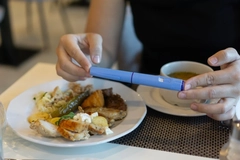
- Industry news
Industry news
- Category news
Category news
- Reports
- Key trends
- Multimedia
- Journal
- Events
- Suppliers
- Home
- Industry news
Industry news
- Category news
Category news
- Reports
- Key trends
- Multimedia
- Events
- Suppliers
Improved Access to Lower Cost Finance and Avoidance of Sugar Tax are Called for by FDII in Policy Document
24 May 2016

24 May 2016 --- Better access to lower cost finance and a resistance to an introduction of a sugar tax are two of the measures called for by Food and Drink Industry Ireland (FDII) in its 'Policy priorities for the food and drink sector 2016'.
The document sets out the policies which the FDII, which represents the food and drink sector in Ireland, believe the new Irish government should pursue in order to support growth and create job in the agri-food economy.
FDII director Paul Kelly said: "The key priorities for the food and drink sector run across different parts of Government and need to be addressed in a co-ordinated way.”
FDII is calling for:
· A relentless focus on manufacturing cost competitiveness, particularly government influenced costs like energy and waste

· Improved access to lower cost finance to ensure the industry can invest in enabling technology, plant renewal and expansion
· Free trade agreements and market access that are aligned with the needs of all the industry
· A continued focus on food sector innovation and skills development with increased budgets for enterprise led training
· Avoidance of discriminatory measures like sugar taxes on beverages which impact on consumers and business alike with no net public health benefit
Mirroring the introduction of a sugar tax in England, the Department of Health and medical organisations have already indicated their support for the introduction of a sugar tax in a bid to tackle rising obesity levels which show that one in four Irish children are overweight.
However, the drinks industry in Ireland is against such as measure.
Kelly added: “The food and drink industry is Ireland’s largest indigenous sector with 230,000 linked jobs. The sector has seen exports grow by over 50% since 2009 to reach €10.8 billion in 2015. The strong ambition within the sector is reflected in the €19 billion export target in Food Wise 2025.”
“However, this ambition is grounded in the reality that Ireland’s food and drink industry faces many challenges in domestic and export markets. These include commodity volatility and market access difficulties; costly and difficult access to finance which is necessary for expansion; import competition in the domestic marketplace and increased calls to impose taxes and restrict choice whilst ignoring positive industry initiatives.
“The National Agri-food strategy Food Wise 2025 doesn’t ignore these challenges and identifies a number of cross–cutting areas that require strategic action if the industry is to capitalize on, deliver and maximize the growth opportunities in the years to 2025. “
“The cross-cutting actions that will facilitate this growth are identified as human capital, competitiveness, market development and innovation. Many of these actions run across different Government Departments and Agencies or are influenced by EU or international developments and policies.”
“Comprehensive and co-ordinated Government engagement is essential to help create the environment for industry to deliver growth and jobs."
All content and features on this website are copyrighted with all rights reserved. The full details can be found in our privacy statement
Subscribe to our newsletters
By continuing to browse our site you agree to our Privacy Statement










